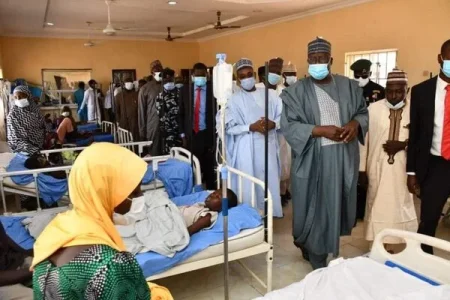
Nigeria is battling a severe meningitis outbreak, with 807 suspected cases and 74 deaths across 22 states. The NCDC has deployed emergency response teams to the worst-hit areas. Health officials urge swift intervention, emphasizing vaccination and infection control to curb the spread of the deadly bacterial disease.
Health authorities in Nigeria are scrambling to contain a severe outbreak of cerebrospinal meningitis, which has resulted in 807 suspected cases and 74 deaths across 22 states. The Nigeria Centre for Disease Control and Prevention (NCDC) has deployed emergency response teams to the hardest-hit states—Kebbi, Sokoto, and Katsina—to curb the disease’s spread.
With a fatality rate of 9.2%, officials stress the urgency of swift intervention. The NCDC, alongside state health agencies, is enhancing surveillance, strengthening case management, and increasing sample collection. Public health experts warn that bacterial meningitis remains the deadliest form, necessitating rapid treatment and vaccination efforts.
Dr. Jide Idris, Director-General of the NCDC, emphasized the importance of infection prevention measures to protect both healthcare workers and affected communities. The response teams are set to remain in the worst-hit areas for at least 14 days, with the possibility of an extended stay if the situation worsens.
Authorities are also intensifying risk communication and community engagement to raise awareness about symptoms, prevention, and the need for early treatment. The World Health Organization (WHO) has long classified meningitis as a major global health threat, particularly in the African meningitis belt, where seasonal outbreaks are common.
Public health officials urge Nigerians to seek medical help immediately if symptoms such as fever, stiff neck, nausea, and confusion arise. Vaccination campaigns and strict hygiene practices are critical to preventing further spread. As containment efforts ramp up, the government and health organizations remain committed to tackling the outbreak head-on.




